FREQUENTLY ASKED DENTAL QUESTIONS – FORT WORTH, TX
Ask Your Fort Worth Dentist
There is a lot to know when it comes to dentistry, so it’s OK if you have questions! Dr. Buck and our team are always happy to answer them. Below, we’ve gone ahead and responded to a few questions we receive every day, but if there is anything else you’d like to know, don’t hesitate to give us a call.
- Oral and maxillofacial (includes pathology, radiology, and surgery)
- Orthodontics and dentofacial orthopedics
- Endodontics (specialization in root canals)
- Periodontics (specialization in gum disease)
- Prosthodontics (specialization in dental implants)
Here at Hulen Crossing Family Dental, we know how busy life can be. Fitting a dental appointment into a busy schedule can feel like a hassle, but it’s worth it. Brushing for two minutes twice a day and flossing daily will keep many oral health problems away; however, it’s not a complete guarantee. Scheduling regular cleanings at Hulen Crossing Family Dental is highly recommended to maintain proper oral hygiene and catch problems before they become costly and painful.
It’s very important to schedule regular cleanings here at Hulen Crossing Family Dental. Dr. Hu can make a recommendation on you how often you should be coming in to best suit your dental health needs. Not all dental problems have obvious symptoms at first. Not only can we identify problems before they become painful and expensive, we can also help to keep your smile looking fantastic. We know how important it is to feel comfortable with your smile. This is why we offer many treatments to help improve patient aesthetics.
At Hulen Crossing Family Dental, an appointment will include a full oral examination, oral cancer exam, professional X-rays to catch cavities, and a full cleaning by our amazing hygienists. Your cleaning will remove tartar, debris, and plaque from your mouth.
Dr. Hu will coordinate with your hygienist and recommend a treatment plan for any problems that are found. We’ll also recommend any aesthetic and cosmetic treatments to improve your smile. Please call our office at (682) 207-6555 to schedule an appointment or for any additional questions.
Professionals throughout the dental industry as well as the American Academy of Pediatric Dentistry (AAPD) agree that a child’s first dental appointment should happen as early as six months of age. This is when the first baby teeth usually begin to show. Dr. Hu will be able to assess the health of your child’s first few teeth and make recommendations for things like navigating teething periods, reducing the risk of decay, and good cleaning techniques.
Dr. Hu recommends at least every three months. If you’re using an electronic toothbrush, make sure to check the recommendation for the type of toothbrush because you may not have to change the head of the brush as often. Other factors like gum disease might require changing toothbrushes more often. Also, after brushing, it’s very important to wash and rinse your brush out with hot water, then store it upright somewhere it can dry between uses. This will kill germs and bacteria and keep your toothbrush clean.
Gum disease is also called periodontal disease. Plaque and bacteria build up continually in our mouths. When this buildup is not treated in the early stages, it can result in gum disease. Risk factors that increase susceptibility to gum disease include smoking or chewing tobacco, teeth grinding, certain medications, and genetics. Advanced forms of periodontal disease can cause permanent damage in the form of bone and tooth loss. Dr. Hu recommends brushing and flossing every day as well as scheduling regular dental appointments as the best way to fight gum disease. Some of the most common signs of periodontal disease are the following:
- Abscessed teeth
- Extreme tooth sensitivity
- Chronic bad breath
- Loose teeth and/or loss of teeth
- Red, swollen, or bleeding gums
- Receding gumline
If you are experiencing any of these symptoms, please call us as soon as possible. You can reach us at (682) 207-6555 or email us to schedule a consultation. Your dental health is our highest concern.

